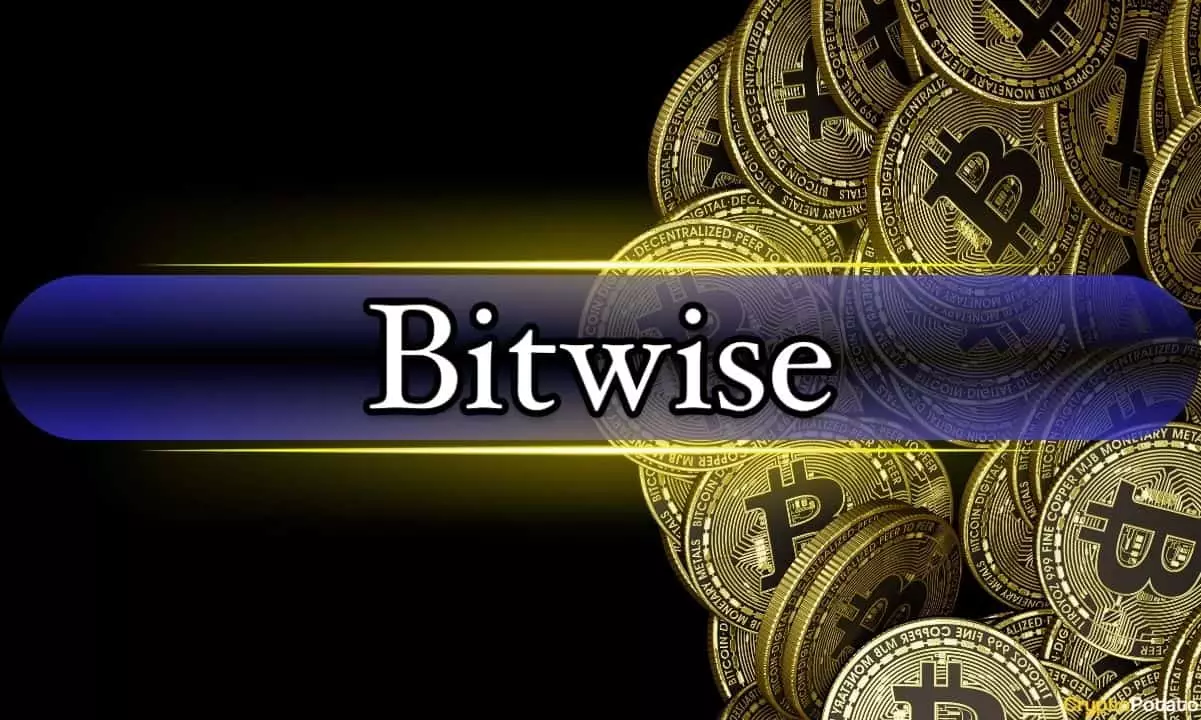The growing interest in cryptocurrency has led to innovative investment vehicles, such as exchange-traded funds (ETFs). A noteworthy player in this movement is Bitwise Asset Management, which is set to make headlines following its recent application to the U.S. Securities and Exchange Commission (SEC) for a novel ETF built upon its existing 10 Crypto Index Fund. This proposal is emblematic of a larger trend in the financial markets—a shift towards integrating digital assets into traditional investment frameworks.
Bitwise’s ETF aims to encapsulate the performance of ten prominent cryptocurrencies by providing investors with weighted exposure. The assets included in this ETF are Bitcoin (BTC), Ethereum (ETH), Solana (SOL), XRP, Cardano (ADA), Avalanche (AVAX), Chainlink (LINK), Bitcoin Cash (BCH), Polkadot (DOT), and Uniswap (UNI). Notably, Bitcoin dominates the index with a staggering allocation of 75.1%, followed by Ethereum at 16.5%, and smaller portions for other cryptocurrencies, such as Solana at 4.3%. The strategic weightings are significant as they determine the ETF’s overall performance and risk profile.
Investors seeking indirect exposure through this ETF will find it a valuable option compared to investing directly in cryptocurrencies. Each asset’s specific share within the fund minimizes the exposure to price volatility, particularly prominent in smaller tokens. Bitwise’s decision to limit fund assets strictly to these identified cryptocurrencies provides a structured approach that is appealing for both conservative and risk-tolerant investors alike.
With the complex regulatory environment surrounding cryptocurrencies, Bitwise has taken considerable measures to ensure the security of its ETF. The trust’s holdings will be overseen by trusted custodians, with Coinbase Custody facilitating the management of the cryptocurrency assets while Bank of New York Mellon will handle cash reserves, serve as the fund’s administrator, and act as the transfer agent. Such a framework not only enhances the safety of investor funds but also establishes an operational legitimacy in an otherwise tumultuous market.
The net asset value (NAV) of the ETF will be derived from CF Benchmarks, an independent pricing source that aggregates data from various cryptocurrency exchanges. This reliance on robust pricing mechanisms is crucial for maintaining transparency and accuracy in the pricing of assets, particularly in a market known for its rapid fluctuations.
Bitwise’s ETF filing comes amid a backdrop of potential changes in the regulatory landscape, particularly following significant political shifts in the U.S. The recent election of Donald Trump has sparked optimism in the cryptocurrency sector, with market observers indicating that this environment may stimulate a fresh wave of ETF applications. Furthermore, Bitwise is not alone in its ambition, as it has been active in expanding its ETF offerings, previously announcing plans for both a Bitcoin and Ethereum ETP weighted by market capitalization and a Solana ETF.
Nevertheless, despite this optimism, the path to approval is fraught with regulatory hurdles. Analysts, such as Bloomberg’s James Seyffart, have cautioned that altcoin ETFs face intricate challenges that could hinder their timelines for approval. The SEC has historically been cautious about approving ETFs linked to cryptocurrencies, especially those that include assets like XRP or alternative tokens with less established market frameworks.
Bitwise Asset Management’s ETF proposal emerges at a crucial junction in the evolving narrative of cryptocurrency investment. By integrating a diversified range of cryptocurrencies into a structured fund, Bitwise presents a compelling proposition that aligns with investor demand for exposure to the fast-growing digital asset market. As regulatory frameworks continue to develop, and as major market players like Bitwise unveil innovative offerings, the landscape of cryptocurrency investing is poised to become embedded in mainstream finance. This ETF could serve not just as an investment vehicle, but as a touchstone for the future of digital asset inclusion in investment portfolios, provided that regulatory challenges are addressed and resolved in a timely manner.

